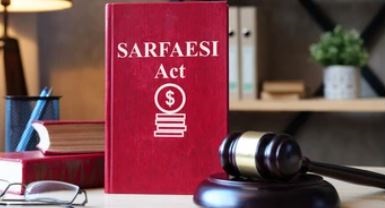Institution Of Proceedings Under The Sarfaesi Act And Arbitration Agreements
Introduction
The Securitization and Reconstruction of Financial Assets and Enforcement of Security Interest Act, 2002 (the “SARFAESI Act”) was enacted with the view to empower financial institutions in enforcement of security interests and facilitate reconstruction of financial assets. The legislation establishes Debt Recovery Tribunals and Appellate Tribunals entrusted with powers to hear appeals on matters under the Act. However, appeals against orders passed under Section 14 of the SARFAESI Act is largely understood to be barred. Further, there is also ambiguity regarding the nature of such Courts and the remedies offered by them as against that offered by judicial courts while attempting to understand its limitations in the presence of an arbitration agreement. Considering the increasing prevalence of arbitration in India, it is inevitable that such conflicts occur. While trying to identify the limitations and delineate the scope of arbitrations agreements, the Courts have largely referred to the actual purpose of such special statutes. The instant article analyses one such judgement that reaffirms this established position of courts i.e., Om Praksah Kumawat v. Hero Housing Finance Ltd., S.B. Civil Writ Petition No. 6199/2022.
[Image Sources : Shutterstock]
One of the essential conditions of an arbitration agreement is that it bars simultaneous institution of proceedings and except to the extent provided under the Arbitration and Conciliation Act, 1996 (the “Arbitration Act”), the jurisdiction of courts is limited. Recently, a bench of the Hon’ble High Court of Rajasthan comprising of Justice Mahendar Kumar Goyal held that proceedings under Section 14 of the SARFAESI Act is not barred by the presence of an Arbitration Agreement.
Background
The matter pertained to a writ petition contending that the recovery of loan by the Respondent, a secured creditor, by resorting to Section 14 of the SARFAESI Act was impermissible in view of the arbitration clause in the loan agreement. The borrowers further contended that alternative remedies were unavailable by relying on a judgment of the Hon’ble Supreme Court in the case of Harshad Govardhan Sondagar v. International Assets Reconstruction Company Limited,[1] to state that appeals against orders passed under Section 14 of the SARFAESI Act are barred.
On the other hand, the Respondents contended that the writ petition must be dismissed in view of the alternative remedy available under Section 17 of the SARFAESI Act by relying on the judgement of the Supreme Court in M/s Shree Balaji Enterprises v. Authorized Officer.[2] Further, by relying on the decision of the Supreme Court in M.D. Frozen Foods Exports Pvt. Ltd. & Ors. Vs. Hero Fincorp Ltd.,[3] it was contended that proceedings under Section 14 of the SARFAESI Act could not be impermissible in presence of an arbitration agreement.
Decision
In pursuance of this, the contentions were considered under the following heads:
- Whether appeal under Section 17 of the SARFAESI Act was available?
- Whether proceedings under the SARFAESI Act was impermissible in view of the arbitration agreement?
Firstly, the Court relied on Balaji Enterprises,[4] to hold that alternative remedy was available to the petitioner under Section 17 of the SARFAESI Act. Further, with respect to the second contention, the Court rejected the petitioner’s reliance on Harshad Govardhan,[5] by differentiating the facts and circumstances of the case.
Further, the Court relied on M.D. Frozen Foods Exports Pvt. Ltd. & Ors. Vs. Hero Fincorp Ltd.,[6] to distinguish proceedings under the SARFAESI Act and arbitration to hold that the remedies are not conflicting in nature but are escalatory processes.
Analysis
It must be noted that the decision reiterates the established position of courts in matters involving arbitration clauses and provisions of the SARFAESI Act and their simultaneous invocation. The 2018 Supreme Court case of Indiabulls Housing Finance Limited v. M/s. Deccan Chronicle Holdings Limited & Ors.[7] which was also relied on in the present case, extensively discussed the non-conflicting nature of the two remedies. The Court’s reasoning was based on the object of the remedies provided for under the SARFAESI Act. The object being speedy recovery of debts for such financial institutions, mere use of remedies under general laws does not foreclose remedies under special statutes. Further, there have been instances wherein the courts have held that when a matter pertains to public policy, under a specific statue meant to provide special remedies, the matter is not arbitrable.[8]
Thus, it can be stated that in general, the conflict between specially constituted courts and arbitral tribunals is resolved by referring to the object of the said special statute. Where the statute acts as a remedial measure, exclusivity of arbitration proceedings may not stand.
Author: Akhila Hebbar, in case of any queries please contact/write back to us at support@ipandlegalfilings.com or IP & Legal Filing.
[1] Harshad Govardhan Son
References
dagar v. International Assets Reconstruction Company Limited, (2014) 6 SCC 1, [HereinAfter “Harshad Govardhan”].
[2] M/s Shree Balaji Enterprises v. Authorized Officer, S.B. Civil Writ Petition No.9054/2021, [HereinAfter “Balaji Enterprises”].
[3] M.D. Frozen Foods Exports Pvt. Ltd. & Ors. Vs. Hero Fincorp Ltd, Civil Appeal No.15147/2017, [HereinAfter “M.D. Frozen”].
[4] Balaji Enterprises, supra, note 2.
[5] Harshad Govardhan, supra, note 1.
[6] M.D. Frozen, supra, note 3.
[7] Indiabulls Housing Finance Limited v. M/s. Deccan Chronicle Holdings Limited & Ors. in Civil Appeal No.18/2018.
[8] Aftab Singh and Others v. Emaar MGF Land Limited. Consumer Case No. 701 of 2015.



